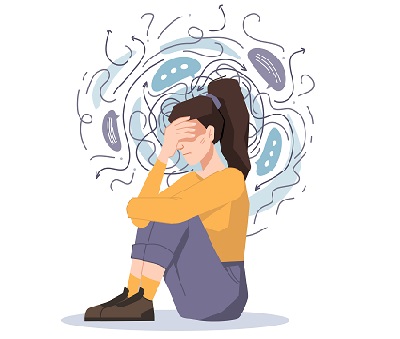How To Control Your Anxiety?
While medication or psychotherapy is necessary for most individuals with anxiety disorders to alleviate their symptoms, an individual’s way of life can have a significant impact.
Work out
One of the best ways to reduce stress is to exercise.
It might improve your mood and keep you healthy.
Increase the amount and intensity of your workout gradually after starting out cautiously. begins with two walks of fifteen minutes each, one in the morning and one in the evening. Increase the intensity of your workout gradually to include outdoor sports, cycling, and the gym.
Yoga
Regular yoga practise helps us live lives that are considerably less stressful and anxious.
It encourages keeping the body and mind healthy. Daily yoga practice is necessary to prevent recurrent panic and anxiety attacks.
By raising the brain’s oxygen content, doing Suryanamaskar for 30 minutes in the fresh air releases neurotransmitters like endorphin and serotonin, which help fight depression and anxiety.
Meditation
There are numerous advantages to meditation. The ability to manage worry is among its most significant advantages. Additionally, it lowers blood pressure, heart rate, and improves the quality of sleep. Furthermore, meditation can strengthen immunity, give you more energy, and help you focus better.
Avoid alcohol and drugs
Anxiety may be exacerbated or caused by certain drugs. Drinking alcohol can make your anxiety symptoms worse every day.
Quit smoking
Caffeine and nicotine both exacerbate anxiety.
We can assist you in your deaddiction process if you are unable to quit on your own.
Sound sleep
Sleeping well for 7-8 hours is necessary for a healthy mind. If you’re not getting enough sleep, you could feel exhausted and anxious. Avoid using a laptop, phone, or television right before bed. Take a warm bath before going to bed.
Eat healthy
Eating a healthy diet that emphasizes fruits, vegetables, whole grains, seafood, and eggs may help reduce anxiety.

